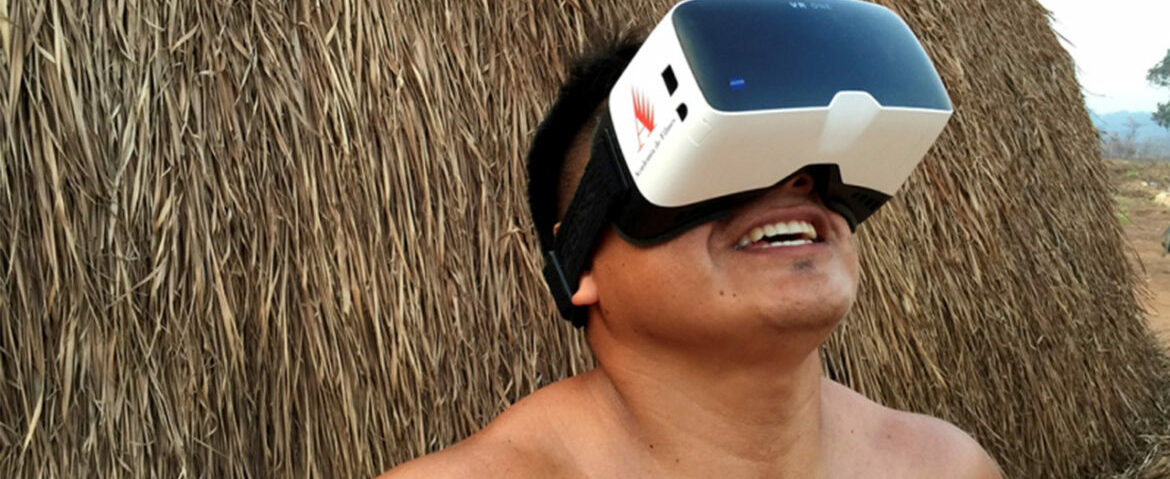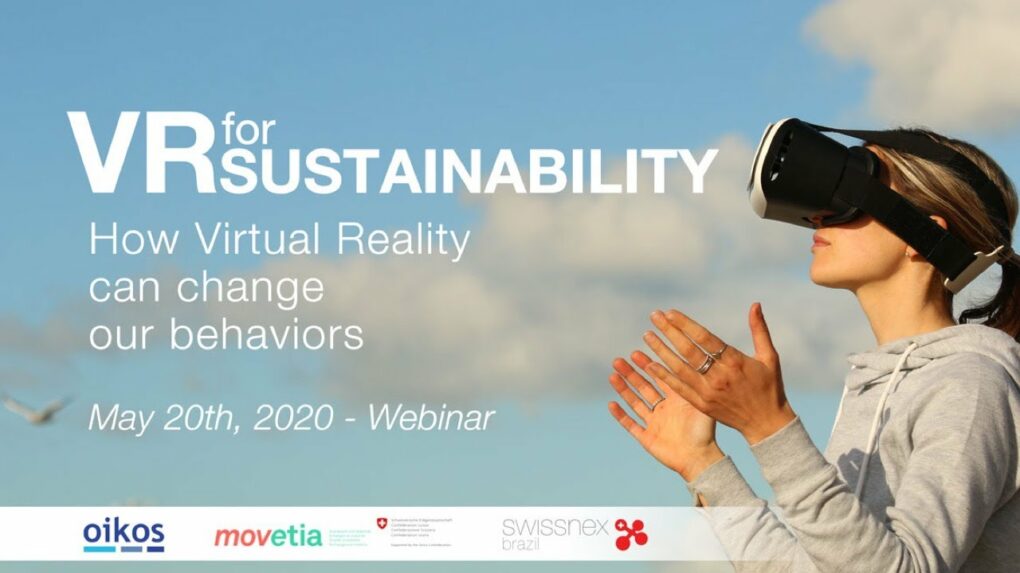
From psychotherapy to education, Virtual Reality has become a tool applied in many fields. In fact, this technology provides the opportunity to embody, live, and understand realities and environments that are physically distant. This event was held on May the 20th, 2020, enabled by Movetia as a result of the collaboration between oikos International and Swissnex in Brazil.
However, VR may pose some ethical problems. In fact, as Maximilian Stoller discussed, VR uses subconscious pathways and manipulates people in making them believe they are somewhere else. This is also a learning opportunity: users may become more aware of how they can be tricked into believing something.
Philippe Bertrand showed, using the “Machine of another” video, how VR can generate illusions. VR can be designed to create empathy, by making you believe you’re in someone else’s body or in another place. This not only changes users’ behaviour during the experience but can help reduce biases. The effects remain even after the experiment, as people tend to have more altruistic attitudes.
Using VR is an immersive and individual experience, without distractions. Pedro Kayatt had an exhibition, Dinos do Brasil, during which visitors would go on a trip to prehistorical Brazil. This shows the potential of VR applications for teaching and training and can bring academia and practice closer.
VR has been a crucial tool for Bruno Weis and his team who made a short-film with the objective to create empathy towards socio-environmental issues and allow viewers to travel to the Amazon. It also helps deconstruct idealized versions of how people live in their traditional communities, anchoring them in the present. This kind of production has a significant impact on people and is an intensive and unique experience.
VR has proved to be an important tool to create empathy and allows its users to be someone else, somewhere else. Thanks to sinking costs, VR could be mainstreamed within a few years along with a better understanding of the high non-monetary value it has.
Watch the full webinar below:
-
![]()
Webinar:
VR4Sustainability: How Virtual Reality can change our behaviors
